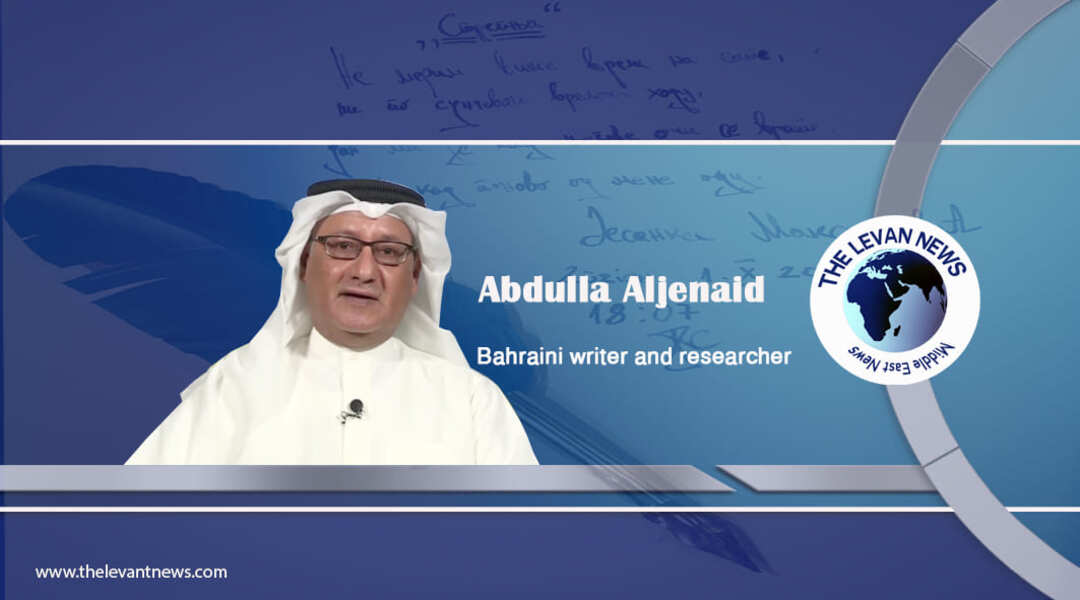-
The F-35 Diplomacy

Can the issue of the US F-35 fighter deal with the UAE be raised without contemplating the special strategic relationship between both countries, or the Emirates' pivotal geopolitical role? A more important question is whether it is acceptable to politicize this deal by the Biden administration now. Therefore, it wasn't unexpected for the UAE to suspend the negotiations given the US choice to delay its completion.
This complication was described by US Secretary of State Anthony Blinken in joint press conference in Kuala Lumpur, "We remain prepared to move forward… if that is what the Emiratis are interested in doing… Washington wanted to ensure that Israel maintains its military advantage… We wanted to make ensure the security of any technologies that are sold or transferred to other partners in the region." Secretary Blinken was implying that the technology revision was mainly Israel's superiority edge regionally, while guarding against any cyber infringement by China through the Chinees 5G infrastructure in the UAE. Washington has also demanded that the UAE provides unprecedented purchase guarantees that challenge the buyer's sovereign rights in use or deployment of these fighter.
Notably, the Pentagon and US State Department had previously went through a reargues approval process prior to approving the deal earlier. That had included the technical specifications from the power plants, radar and navigation, advanced communications and data sharing, missile guidance, and weapons bay payloads. The UAE requested specifications are unique to its needs, and another detail that Secretary Blinken have missed, was the fact that the Israeli armed forces has always applied its own modifications to any system the Israel acquires including the F-35's, as they had modified the Israeli Air Force F-15/16 fighter in the past, and the specifications Dolphin class submarines that they had acquired and are acquiring from Germany. Furthermore, the current Israeli government did not express any objection to the deal to go through. Which lead us to conclude that Washington has other motives than the ones stated by StateSect Blinken.
Washington's decision to “complicate” this deal at this point in time could be linked to the faltering Vienna talks with Iran or is it expressing more than a verbal objection to some of the UAE recent regional FP policy steps that Washington disapprove, as have been expressed by several US officials after the UAE's Foreign Secretary Shaikh Abdulla bin Zayed Al-Nahyan's visit to Damascus, or mybe the direct talks with Iran.
Venturing further into US concerns over China's 5G network security risks to the F-35 program, one wonders whether a similar concern was overlooked by Washington when it supplied the UAE with the advanced THAAD air defense system, or has the US Air Force registered any infringement or an attempt to any of highly advanced systems that the US Air Force fields and operate out of Al-Dhafra Air Base in Abu Dhabi?
There are implications to both the shunned UAE demands that Washington passes a verdict regarding the F-35 deal, and the unanswered calls by Saudi Crown Prince Mohammed bin Salman Al-Saud to include the Kingdom in the Iran talks in Vienna. The Biden administration should review its strategic integration and interdependence priorities with its regional allies, to serve the common strategic interests of all, instead of granting primacy to short-term political desires and goals.

BY: Abdulla Aljenaid
You May Also Like
Popular Posts
Caricature
BENEFIT Sponsors BuildHer...
- April 23, 2025
BENEFIT, the Kingdom’s innovator and leading company in Fintech and electronic financial transactions service, has sponsored the BuildHer CityHack 2025 Hackathon, a two-day event spearheaded by the College of Engineering and Technology at the Royal University for Women (RUW).
Aimed at secondary school students, the event brought together a distinguished group of academic professionals and technology experts to mentor and inspire young participants.
More than 100 high school students from across the Kingdom of Bahrain took part in the hackathon, which featured an intensive programme of training workshops and hands-on sessions. These activities were tailored to enhance participants’ critical thinking, collaborative problem-solving, and team-building capabilities, while also encouraging the development of practical and sustainable solutions to contemporary challenges using modern technological tools.
BENEFIT’s Chief Executive Mr. Abdulwahed AlJanahi, commented: “Our support for this educational hackathon reflects our long-term strategic vision to nurture the talents of emerging national youth and empower the next generation of accomplished female leaders in technology. By fostering creativity and innovation, we aim to contribute meaningfully to Bahrain’s comprehensive development goals and align with the aspirations outlined in the Kingdom’s Vision 2030—an ambition in which BENEFIT plays a central role.”
Professor Riyadh Yousif Hamzah, President of the Royal University for Women, commented: “This initiative reflects our commitment to advancing women in STEM fields. We're cultivating a generation of creative, solution-driven female leaders who will drive national development. Our partnership with BENEFIT exemplifies the powerful synergy between academia and private sector in supporting educational innovation.”
Hanan Abdulla Hasan, Senior Manager, PR & Communication at BENEFIT, said: “We are honoured to collaborate with RUW in supporting this remarkable technology-focused event. It highlights our commitment to social responsibility, and our ongoing efforts to enhance the digital and innovation capabilities of young Bahraini women and foster their ability to harness technological tools in the service of a smarter, more sustainable future.”
For his part, Dr. Humam ElAgha, Acting Dean of the College of Engineering and Technology at the University, said: “BuildHer CityHack 2025 embodies our hands-on approach to education. By tackling real-world problems through creative thinking and sustainable solutions, we're preparing women to thrive in the knowledge economy – a cornerstone of the University's vision.”
opinion
Report
ads
Newsletter
Subscribe to our mailing list to get the new updates!






















